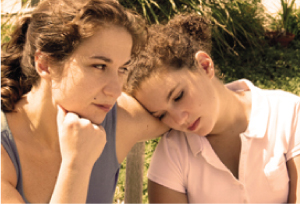Colorado has a divorce rate at 12%, where 13.52 people out of every 1,000 have been divorced in 2021 ranking as the state with the 15th highest divorce rate in the country. Colorado divorce rates have increased by 4% over the past 3 years. In the state of Colorado, El Paso county has the highest divorce rate, followed by Denver County and Aspen has the highest divorce rate of any city in Colorado. This is a rate per annum, so when averaged over a person’s lifetime, many resources estimate the U.S. divorce rate to be about 50%. The Barna Group recently completed an interesting study, which reads in part as follows:
Most Americans get married at some point in their life: just one out of five adults (22%) has never been married. Among those who have said their wedding vows, one out of three have been divorced at least once, according to a new study from The Barna Group. In addition to finding that four out of every five adults (78%) have been married at least once, the Barna study revealed that an even higher proportion of born again Christians (84%) tie the knot. That eclipses the proportion among people aligned with non-Christian faiths (74%) and among atheists and agnostics (65%).
Divorce Is Widespread
Among adults who have been married, the study discovered that one-third (33%) have experienced at least one divorce. That means that among all Americans 18 years of age or older, whether they have been married or not, 25% have gone through a marital split.
The study showed that the percentage of adults who have been married and divorced varies from segment to segment. For instance, the groups with the most prolific experience of marriage ending in divorce are downscale adults (39%), Baby Boomers (38%), those aligned with a non-Christian faith (38%), African-Americans (36%), and people who consider themselves to be liberal on social and political matters (37%).
Among the population segments with the lowest likelihood of having been divorced subsequent to marriage are Catholics (28%), evangelicals (26%), upscale adults (22%), Asians (20%) and those who deem themselves to be conservative on social and political matters (28%).
Born again Christians who are not evangelical were indistinguishable from the national average on the matter of divorce: 33% have been married and divorced. The survey did not determine if the divorce occurred before or after the person had become born again. However, previous research by Barna has shown that less than two out of every ten people who accept Christ as their savior do so after their first marriage.
In fact, when evangelicals and non-evangelical born again Christians are combined into an aggregate class of born again adults, their divorce figure is statistically identical to that of non-born again adults: 32% versus 33%, respectively.
Thirty percent of atheists and agnostics had been married and subsequently divorced. However, the three-point difference from the national average was within the range of sampling error, suggesting that their likelihood of experiencing a dissolved marriage is the same as that of the population at-large. A representative from Barna also pointed out the atheists and agnostics have lower rates of marriage and a higher likelihood of cohabitation, a combination of behaviors that distort comparisons with other segments.
For the full study, go to https://www.barna.com/research/new-marriage-and-divorce-statistics-released/.
The Barna Group, Ltd. (which includes its research division, The Barna Research Group) conducts primary research, produces media resources pertaining to spiritual development, and facilitates the healthy spiritual growth of leaders, children, families and Christian ministries. Located in Ventura, California, Barna has been conducting and analyzing primary research to understand cultural trends related to values, beliefs, attitudes and behaviors since 1984. If you would like to receive free e-mail notification of the release of each new, bi-monthly update on the latest research findings from The Barna Group, you may subscribe to this free service at the Barna website www.barna.org.






